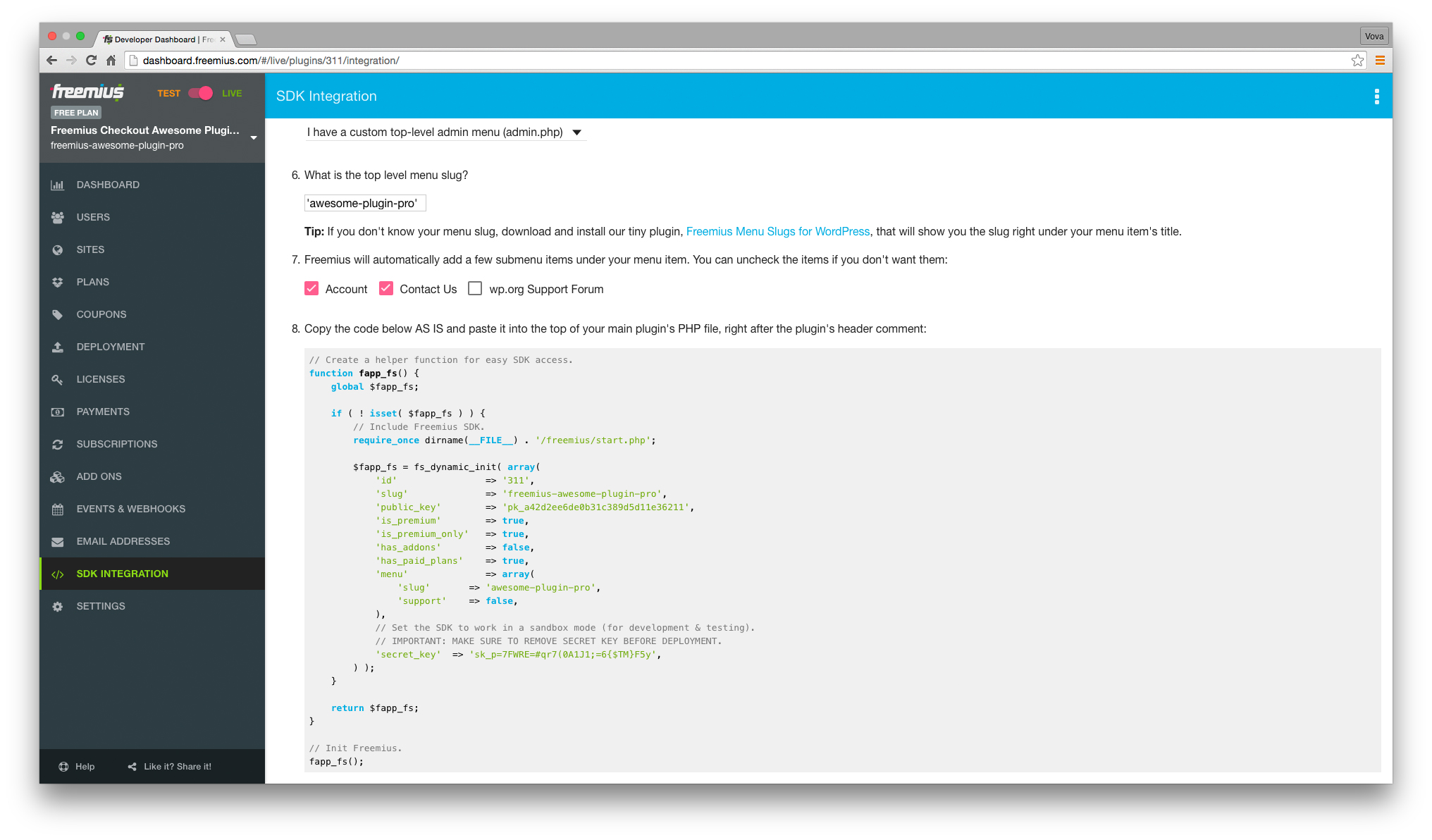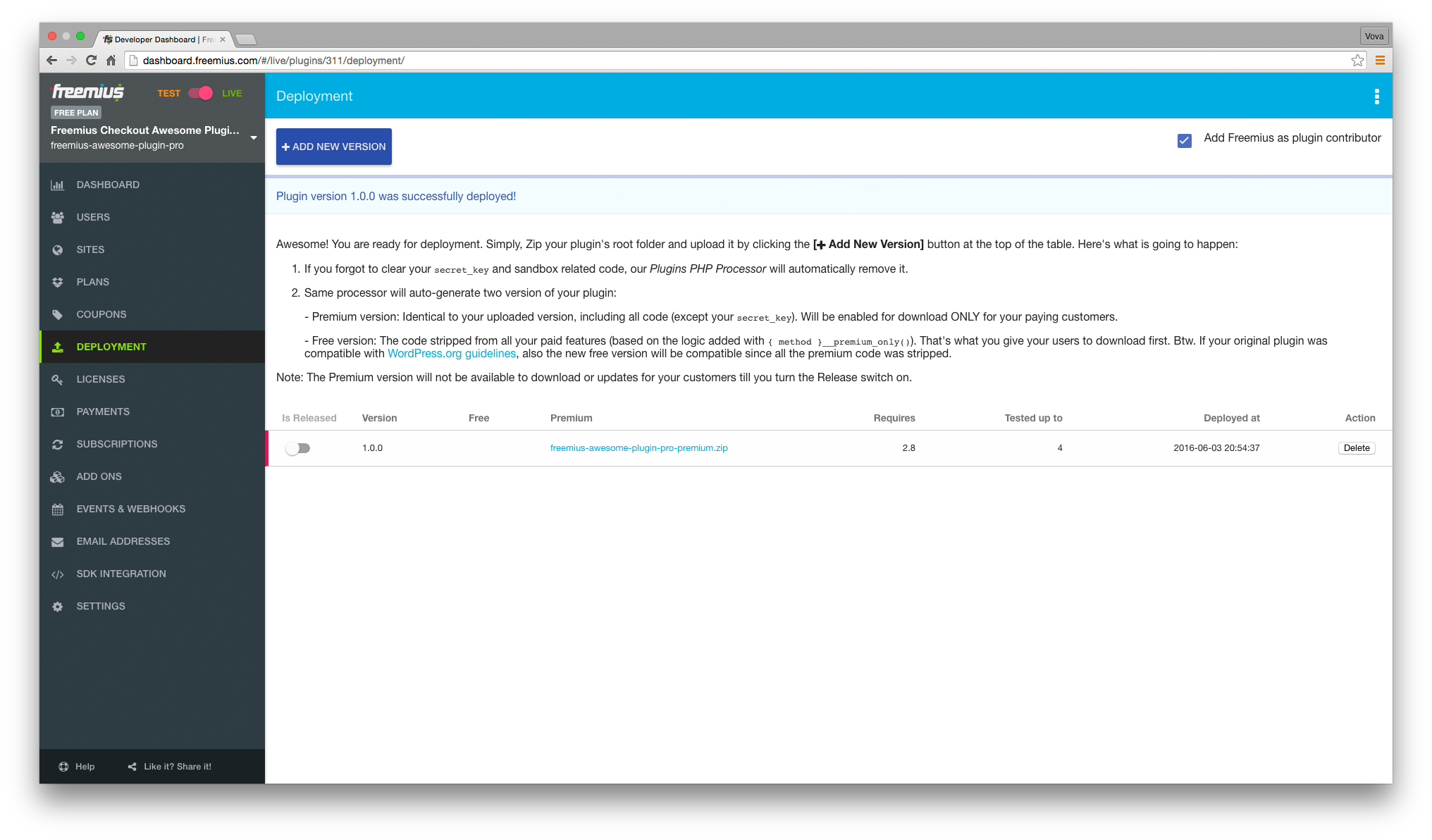When it comes to selling commercial WordPress products, it’s common for developers to use a myriad of plugins to handle different aspects of the site. For example, Easy Digital Downloads handles commerce while the Software Licensing add-on addresses license keys. Depending on the complexity and the number of products involved, maintaining and configuring such a site can be a complicated nightmare. A new product called Freemius Checkout aims to remove the complexities associated with selling products on your own.
Freemius Checkout provides just about everything a developer needs to easily sell a plugin or theme. Developers can manage plans, coupons, deployment options, licenses, and much more from the dashboard. You can also create and manage add-ons as well as hook into third-party services using webhooks. Freemius Insights is built-in allowing you to obtain detailed analytics from users.

In order to manage licenses and take full advantage of Checkout, developers need to integrate the Freemius SDK into their plugins or themes. The SDK provides the code necessary for customers to input license keys when upgrading to the premium version. It’s also what connects the product to the Freemius service allowing developers to manage various aspects of it from the dashboard.

Although the SDK is geared towards WordPress integration, the buy button it generates can be placed anywhere you want to sell the product. Developers can control deployment by uploading the product’s zip file to Freemius. Once uploaded, you choose when an update is available to customers by toggling a switch.

Vova Feldman, founder of Freemius, says the service is not a marketplace and since payments go through Stripe.js and PayPal Express Checkout, transaction data is not stored on its servers. Freemius Checkout handles the commerce, management, and deployment portions of the plugin requiring developers to focus on marketing efforts.
Freemius Checkout is Too Expensive For Some to Make The Switch
For those looking to make the switch from CodeCanyon and other marketplaces that use revenue sharing models, Freemius takes 10 percent plus 30 cents per sale, which includes the gateway fee.
For some developers, the Freemius revenue sharing model is cost prohibitive to make the switch. Jeff Matson, creator of Notifybot.io, manages his commercial plugin through a combination of Easy Digital Downloads and the Software Licensing extension. Matson explains why selling through Freemius is too expensive for his tastes.
“Freemius Checkout seems to make sense for smaller sellers who are doing a very minimal amount of revenue, but when you get to the higher end of the spectrum, it’s going to get expensive quickly,” Matson said. “With marketplaces like Envato, they are promoting your plugins and themes, so the cut makes sense; but for software licensing alone, you’re going to start dreading that percentage.”
So what would it take to get people like Matson to switch? “I like the idea of a hosted plugin/theme licensing model, but I really think there needs to be alternative solutions in terms of pricing,” Matson said. “A per-install tier like the other products Freemius offers would be nice.”
Two items that are seemingly always in demand are convenience and simplicity. It will be interesting to see how many product developers make the switch or use Freemius Checkout outright to handle the product side of their businesses. There’s much more to Freemius Checkout than what I’ve covered here. To learn more about the service, check out the launch post or sign up for a free account.
Thanks for the cover @jeffr0. With regards to Jeff Matson’s comment about the pricing, it’s important to mention that we cover the gateway fees, so it’s only 7% rev-share. In addition, we absolutely understand that a plugin/theme developer/business that makes a million bucks a year won’t pay us $70k. Therefore, on high volumes, there’s room for a lower percentage that will make it a win-win offering for both sides.